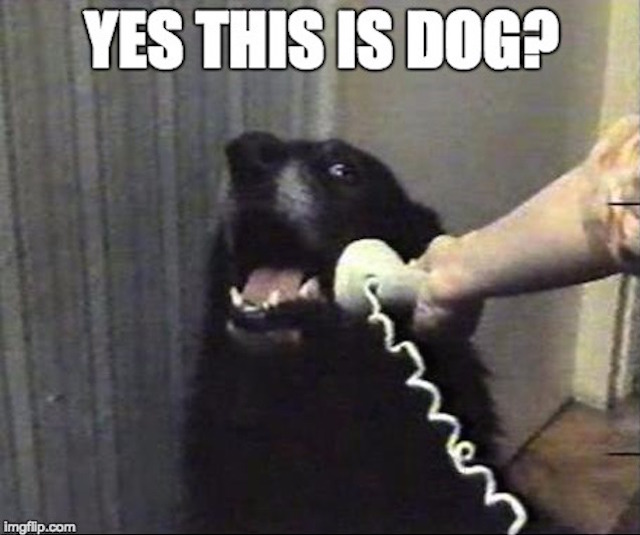
4 Reasons to Forget the Phone and Stick to Chat
The single biggest problem in communication is the illusion that it has taken place. - George Bernard Shaw
Some days ago me and my colleague were having a heated discussion over Slack. Something concerning new team pictures ; he thought they looked good, I thought they looked god-awful. So we chatted about getting new ones or not.
In the midst of the chat, he shoots me this message:
“Let’s switch to phone, it’s easier.”
Makes sense, right? We switched, we talked. Twenty minutes later we hung up. Him still in favor of keeping the current pictures, me still wanting to get new ones.
After two days we met in person and had the exact same discussion, exchanging the exact same arguments. It’s like none of them had stuck for either of us. Then it hit me: we shouldn’t switch from Slack to phone anymore.
The logic favoring calls (or face to face meetings) to chat are the following:
- Speech is faster than typing
- You get direct feedback
- It’s more personal and interactive
So that makes phone easier, right? Wrong. Phone isn’t easier. Next time you’re having a discussion, you’d better stick to Slack. I guarantee you faster and better decision making. Allow me to defend this bold statement:
1. Chat clarifies your thinking
Since I seriously picked up writing for my work, I really started noticing the limitations of our spoken communication. I also noticed how much smarter people appear when writing instead of talking.
Writing forces you to express yourself as clearly as possible. When crafting a sentence in text, you become your own teacher. Your words are visualized and you have the opportunity to improve before sending. The result: more thoughtful and effective communication.
How many times do we say something and immediately feel like this guy?

Heated discussions cause stress. The emotional signals in personal conversations add to that, blocking the ability to organize your thoughts. Maybe you’re thoughtful by nature, but I feel more often like a Hagrid than I’d like to.
2. Chat allows you to read back
A good speaker can impress. Almost as if in hypnosis, you can be guided through a compelling story. Ten minutes later however, you probably don’t recall exactly what had been said.

That’s a limited short-term memory messing with you. The problem with spoken communication is that production and consumption of information coincide. You can’t go back to check what was said exactly.
This isn’t such a problem at your typical cocktail party. But when it concerns important business decisions, you will want to have a correct view of all arguments. With chat you can easily read back and process more complex information.
3. Chats are easily shared
Sure, talking is faster than chatting. Yet how often do we find ourselves repeating the same thing over and over again to different people? Quick talk includes massive amounts of redundancy.
With Slack I often copy & paste good chat messages to other chats, emails, Asana tasks, GitHub tickets, or even blog posts. With chat you only have to express things well once. Even better, you can always improve your written argumentation until it’s solid enough for repurposed sharing. Now that's efficient.
4. Chat gives space to rationality
Egos have the nasty habit of getting in the way of clear decision making. In essence, companies aren’t more than purposeful groups of highly intelligent apes. And like apes, it’s often the dominant ones that call the shots.
At least that’s how it is with phone or face-to-face discussions. In these channels dominant people can press their will onto others. Chat on the other hand focuses more on what is communicated instead of how. The result: thoughtful and on-topic discussions.
In our early startup-days we were working with four guys from a small office. These were stressful times with lots of intense discussions, which got more serious during periods of few to no incoming customers. These were slowly eating away our team spirit.
To lean down until we reached solvency, we decided to abandon the office and work remotely from our respective apartments. As a side effect we had to rely more on IM clients for our communication. Unexpectedly, this proved the best cure for our conflicts.
We discussed complex topics calmly and clearly over the chat. Fights were avoided, egos were spared and progress was made. I honestly don’t think we’d gotten where we are now without that move.
Of course chat isn’t perfect. And my idea for a utopia includes face-to-face contact. The case I am trying to make though is that in business, where correct communication is critical, the value of chat is strongly underrated.
Whether it's internal or B2C live chat communication , it has some benefits in effectiveness and efficiency that can't be reached over the phone. So next time someone suggests to switch from IM to phone, just say...


